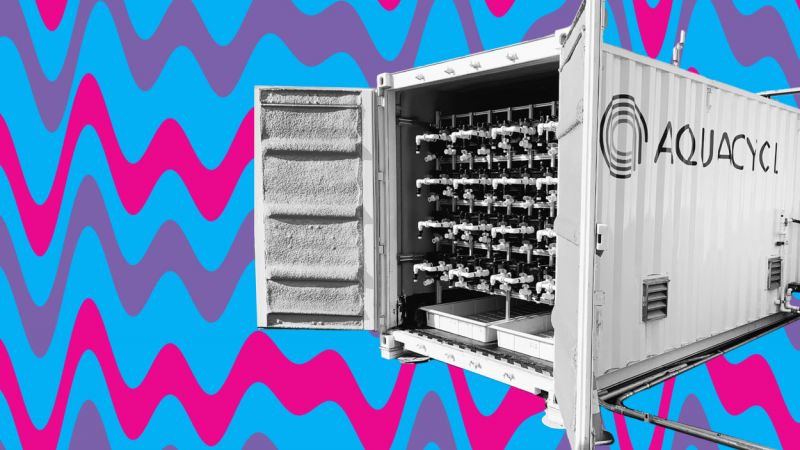Microbial fuel cells to clean up wastewater
Published on by Water Network Research, Official research team of The Water Network in Technology
Aquacycl’s modular technology helps clean up contaminated water before it flows down the drain. In some cases, it can also be reused onsite after it’s cleaned.
This article is about one of the honorees of Fast Company ’s Next Big Things in Tech awards for 2022. Read about all the winners here .
.jpeg)
In a shipping container next to a PepsiCo bottling plant in Fresno, California, a startup called Aquacycl is working with the food giant to pioneer new technology that can help tackle one of the lesser-known sources of climate emissions: cleaning up industrial wastewater.
“Globally, water and wastewater treatment accounts for more greenhouse gas emissions than the entire shipping industry,” says Orianna Bretschger, Aquacycl’s CEO. Most of those emissions come from the energy used to run large wastewater treatment plants, where building-sized tanks process dirty water. The traditional system also generates sludge that often ends in landfills.
Aquacycl’s modular technology helps clean up contaminated water before it flows down the drain. In some cases, it can also be reused onsite after it’s cleaned. Inside the shipping container, hundreds of microbial fuel cells, each roughly the size of a car battery, use natural, locally-sourced bacteria to break down contaminants. The system can be sized up or down depending on the volume of wastewater, with the fuel cells attached together like Legos.
Aquacycl’s system is also designed to make the microbes work quickly. “We basically are giving the bacteria a nonstop treadmill,” she says. “That’s enabling us to provide treatments in a small footprint very efficiently, because we can do in hours what a conventional technology takes days to do.” For wastewater with very concentrated contaminants, like the sodas coming out of bottling plant, the process doesn’t fully clean the water. But when it’s sent to a wastewater treatment plant, it’s so much cleaner that it can reduce greenhouse gas emissions by 90%.
On average, the system at the Pepsi plant is eliminating 110 tons of greenhouse gas emissions per month. It also saves the company money because its bills from the utility have dropped. Pepsi pays Aquacycl a smaller service fee.
Taxonomy
- Treatment
- Biological Treatment
- Microbiology
- Microbiology
3 Comments
-
Good job!
-
Would like to know more about the system
-
Hi I wonder how they make bacteria to work quickly